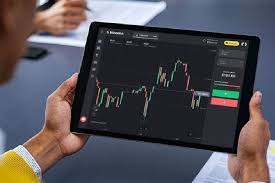A brokerage account is a financial tool that allows people to invest in various securities such as stocks, bonds, mutual funds, and exchange-traded funds (ETFs). Think of a brokerage account as a gateway to the world of investing. It provides investors access to many investment products and the necessary tools to manage their portfolios effectively. But how exactly does it work? In this article, we explain what a brokerage account is, how it works, the account number, and Roth IRA. Ready? Let’s dive in!
What Is A Brokerage Account And How Does It Work?
A brokerage account is an investment account that allows you to buy and sell various financial assets such as stocks, bonds, mutual funds, and exchange-traded funds (ETFs). It serves as an intermediary between the investor and the financial markets, providing a platform for trading and holding these investments.
When you open a brokerage account, you’ll deposit funds and then use those funds to invest in a wide range of securities. You can make your investment decisions or work with a financial advisor who can give financial guidance.
However, the brokerage account serves as a custodian for the investments, holding them and executing trades on your behalf. You, as the account holder, can monitor your investments and portfolio performance through an online platform provided by the broker. Additionally, brokerage accounts often offer features like dividend reinvestment, margin trading, and tax reporting to assist investors in managing their investments.
How Do I Create A Brokerage Account?
Creating a brokerage account is a simple process with a few easy steps.
- The first step is to choose a reputable brokerage firm that suits your needs. Research different brokerage firms and compare their fees, customer service, and investment options they offer.
- After selecting a brokerage firm, open an account with them. This typically involves completing an online application form or filling out physical paperwork. You must provide personal information such as your name, address, and social security number. You may also answer questions about your investment experience and risk tolerance.
- Once all the necessary information is submitted and verified, you will typically receive your account number and login details. This will allow you to fund the account and start investing. Read more on how to open a brokerage account.
When opening a trading account, it is crucial to understand the different accounts available to investors. Common options include individual brokerage accounts, joint brokerage accounts, retirement accounts, and custodial accounts for minors. For example, individual accounts allow you to invest in your name, while multiple people share joint accounts.
What Is A Brokerage Account Used For?
A brokerage account is a financial account that individuals use to buy and sell securities such as stocks, bonds, mutual funds, and exchange-traded funds (ETFs). It serves as a gateway for individuals to enter the investing world and allows them to access a wide range of investment products offered in financial markets. The primary purpose of an investment account is to facilitate the buying and selling of securities on behalf of investors.
One of the main functions of an investment account is to provide a platform for investors to execute trades. It allows individuals to place orders for buying or selling securities and connects them with financial markets.
Brokerage accounts provide access to research and analysis tools, which help investors make informed investment decisions. Additionally, brokerage accounts often offer features such as margin trading, and options trading. And access to initial public offerings (IPOs), allowing investors to further diversify their investment portfolios.
Overall, brokerage accounts enable people to participate in the financial markets and grow their wealth through investments.
What Is A Brokerage Account Number?
A brokerage account number is a unique identification number a brokerage firm assigns to an individual or entity. It serves as a means of identification and facilitates the management and tracking of investments. The account number is typically a combination of letters and numbers specific to an account holder and distinguishes their holdings from other investors. This number is for various purposes, including logging into the brokerage platform, making transactions, and accessing account statements and other documents.
The brokerage account number plays a crucial role in trading and investment. It allows investors to keep track of their financial holdings and monitor their investment performance. With this number, investors can easily view their portfolio balance, transaction history, and potential gains or losses.
In addition, a brokerage account number serves as a reference when communicating with the brokerage firm’s customer service or support team. It helps to ensure the security and privacy of an individual’s investment information. This is because it’s used to authenticate the account holder’s identity when conducting transactions or accessing account-related information.
What Is An Example Of A Brokerage Account?
One example of a brokerage account is an online trading platform like Robinhood. Robinhood is a popular equity account that allows individuals to buy, sell, and trade stocks, ETFs, and cryptocurrencies. With an equity account like Robinhood, you can create an account easily and access it through a mobile app or a website. Then, deposit funds into your account and use those funds to trade various financial instruments. Robinhood also provides users with real-time market data, news, and research tools to help make informed investment decisions. This trading account is particularly appealing to beginner investors due to its user-friendly interface and commission-free trading.
Another example is the traditional full-service brokerage accounts from companies like Fidelity, Charles Schwab, or TD Ameritrade. These brokerage accounts typically come with more services and features compared to online trading platforms. With a full-service brokerage account, you have access to financial advisors who can provide personalized investment advice and recommend suitable investment options. These accounts also often offer many investment products, including mutual funds, bonds, and annuities. However, full-service investment accounts may charge commissions or fees for trades and account maintenance, making them more suitable for experienced investors or those seeking professional guidance.
Can You Cash Out A Brokerage Account?
Yes, you can cash out a brokerage account. When you no longer wish to keep the investments in your stock account, sell and withdraw the funds. Cashing out a trading account can be relatively straightforward, but consider the potential consequences.
Selling your investments may result in gains or losses, depending on the current value of the securities. However, it’s best to review potential tax implications and consult with a financial advisor to ensure you make wise decisions. Additionally, consider your long-term investment goals and whether cashing out aligns with your overall financial strategy.
What Is A Brokerage Account Roth IRA?
A brokerage account Roth IRA is an individual retirement account that offers tax advantages for investors. Unlike traditional IRAs, Roth IRAs allow investors to contribute after-tax income into their accounts. The funds in a Roth IRA grow tax-free, and withdrawals made after the age of 59.5 are also tax-free.
A brokerage account Roth IRA allows investors to grow their retirement savings by investing in numerous financial instruments. Investors can choose from stocks, bonds, mutual funds, ETFs, and other investment options available through a brokerage firm. This flexibility allows individuals to tailor their investments to their specific risk tolerance and financial goals. Additionally, investors can work with a financial advisor or manage their investments independently.
In a nutshell, a brokerage account Roth IRA provides a tax-efficient way for individuals to save for retirement while enjoying the potential benefits of investing in the stock market and other investment opportunities.
How Do I Start A Brokerage?
Starting a brokerage can be an exciting and potentially lucrative venture. However, it requires careful planning and preparation to ensure its success.
- The first step in starting a brokerage is to thoroughly research and understand the industry. You should familiarize yourself with the regulations and requirements governing brokers in your country or region. This information will help you determine what licenses and certifications you may need to obtain.
- Additionally, understand the brokerage services you want to offer, such as real estate, stock trading, or insurance. This will impact the next steps in setting up your brokerage.
- Next, create a comprehensive business plan. This plan should outline your goals, target market, competition, pricing and fee structure, marketing strategies, and financial projections. Be realistic and thorough in your business plan, as it will serve as a roadmap for the future success of your brokerage.
- Lastly, secure the necessary funding to start your brokerage. This can include personal savings, loans from banks or investors, or crowdfunding. Hence, having a well-prepared business plan will increase your chances of securing funding and help attract potential partners.
How Do I Start A Deposit For A Brokerage Account?
Generally, you can deposit money from one investment account to another, a wire transfer, or a check. Brokerages typically permit fee-free deposits, but read the fine print before sending money.
What Is A Brokerage Account Fidelity?
A brokerage account with Fidelity refers to a financial account provided by Fidelity Investments, one of the largest and most reputable brokerage firms in the United States.
How Much Money Do You Need To Open A Fidelity Brokerage Account?
Fidelity has no minimum requirements for opening or keeping a trading account and doesn’t charge any fees.
What Is The Minimum Amount To Open A Fidelity Brokerage Account?
The minimum amount to open a Fidelity brokerage account is $0. Fidelity, one of the largest brokerage firms in the United States, offers the flexibility for investors to start investing with no initial deposit requirement.
This makes it accessible for individuals without a large amount of capital to invest right away. Also, it allows investors to gradually build up their investment portfolio over time, contributing additional funds as they see fit.
Conclusion
In conclusion, a brokerage account is a valuable tool for anyone looking to invest in the stock market or other financial securities. It gives access to a wide range of investment options, allowing you to buy and sell securities on the market. Whether you are a seasoned investor or starting a trading account can help you achieve your financial goals.






